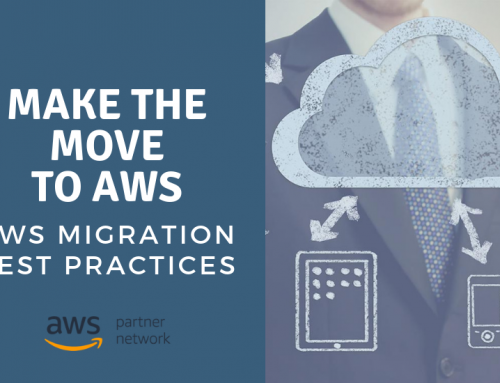Containers are taking the IT world by storm. According to industry-leader, Docker, over 3.5 million applications have been placed in containers using Docker technology and over 37 billion containerized applications have been downloaded. 451 Research predicts the application container market will explode over the next five years. If you haven’t yet adopted containers as part of your strategy, you may be asking, why you should use containers at your organization?
What are containers?
Containers promise an easy-to-deploy, secure, and streamlined method of implementing specific infrastructure requirements, and also offer an alternative to virtual machines. They create an isolation boundary at the application level rather than at the server level, meaning that if something goes wrong in the container, it’s not affecting the entire server. Containers are made to operate with the minimum amount of resources to perform the task they were designed for. They’re portable, easily copied and do not require a long configuration process.
Though they both provide a way to isolate applications and a platform to run said applications, containers are not virtual machines. The key difference between VMs and containers is that with VMs, hypervisors abstract the entire device, running VMs that have their own operating system. On the other hand, containers abstract the operating system kernel.
Of course, containers won’t work for every application or every situation. However, for many situations and scenarios, they work well. There are several reasons why you should use containers at your organization.
You’re starting from scratch on a new application
If you’ve got a brand-new slate on which to write on and are committed to writing your new application or rewriting your existing application around a microservices-based architecture, then you’ve got a good case for why you should use containers. In this scenario, containers speed up the application development and delivery efforts. Code can also be run across almost any infrastructure without modification.
You’re looking for efficiency
Because containers use shared operating systems, at their core, they’re much more efficient than hypervisors in terms of system resources. There’s no need to carry a bunch of virtualized hardware within the container, and instead, you can contain your application within a small, neat capsule. This allows your organization to run many more server application instances on the same hardware which is more efficient and economical.
You’re a DevOps organization
A pillar of DevOps is continuous integration and continuous deployment, which encourages developers to share their code and then deploy the code quickly. Containers allow developers to pack, ship, and run any application anywhere by isolating code, making it easier to modify and update. There’s no need to rewrite the code all over again for each platform the container is going to run on, saving time, money and effort.
Containers also make it possible easily set up local development environments that act exactly like a live server. Testing applications is much easier, as developers can quickly see if a change works properly on a variety of different settings. Containers make it easy to break out your application’s functionality into individual containers.
You want portability
A major reason why you should use containers is portability. Because a container wraps up an application with everything it needs to run, you can easily and reliably run applications on different environments. This type of portability gives organization flexibility and speeds up development, as well as makes it easier to switch to another cloud environment if necessary.
You want speed and scaling
Containers do not require an operating system boot so they’re quick to start, create, replicate or destroy. In a matter of seconds, you can release new software or versions. With the ability to horizontally scale, you can add more identical containers within a cluster to scale out. Smart scaling allows you to only run the containers needed in real time, reducing resource costs and accelerating ROI.
In a nutshell, if you’re looking for why you should use containers at your organization: they can get more applications running on the same hardware than other technologies, it’s easy for developers to create containered applications and manage them, and containers are faster, more scalable, and offer better portability than other solutions.
WSM has partnered with Docker and can help you transition to containers or make containerization a part of your migration to the cloud.







